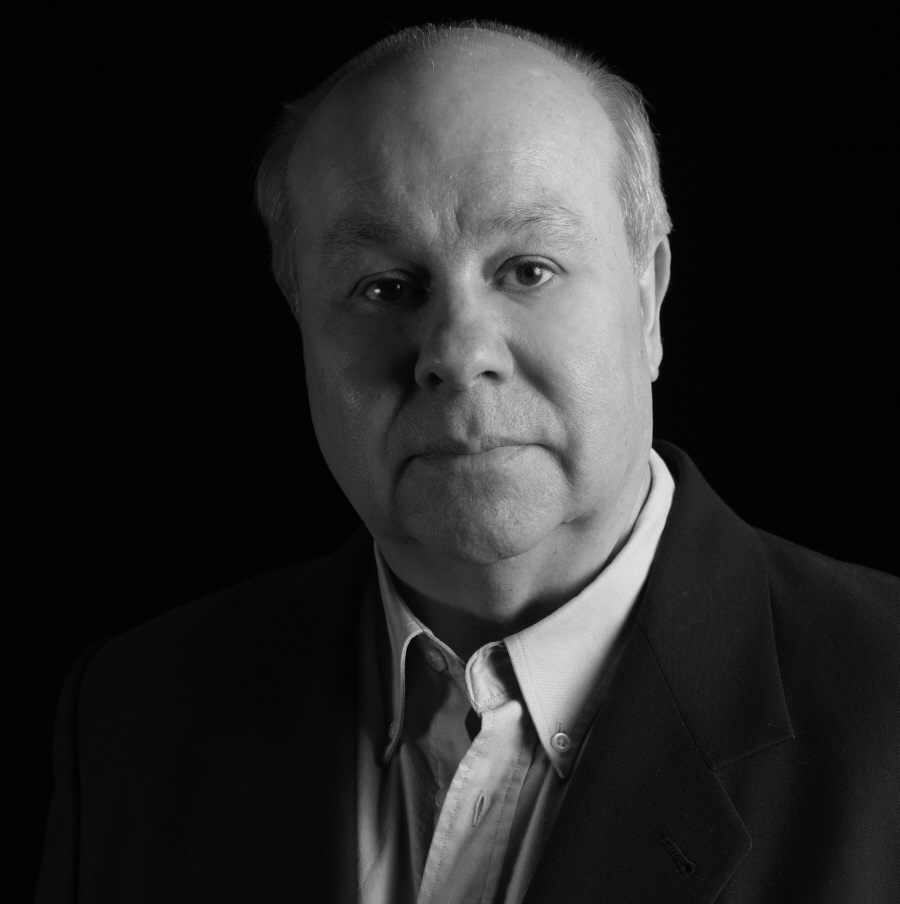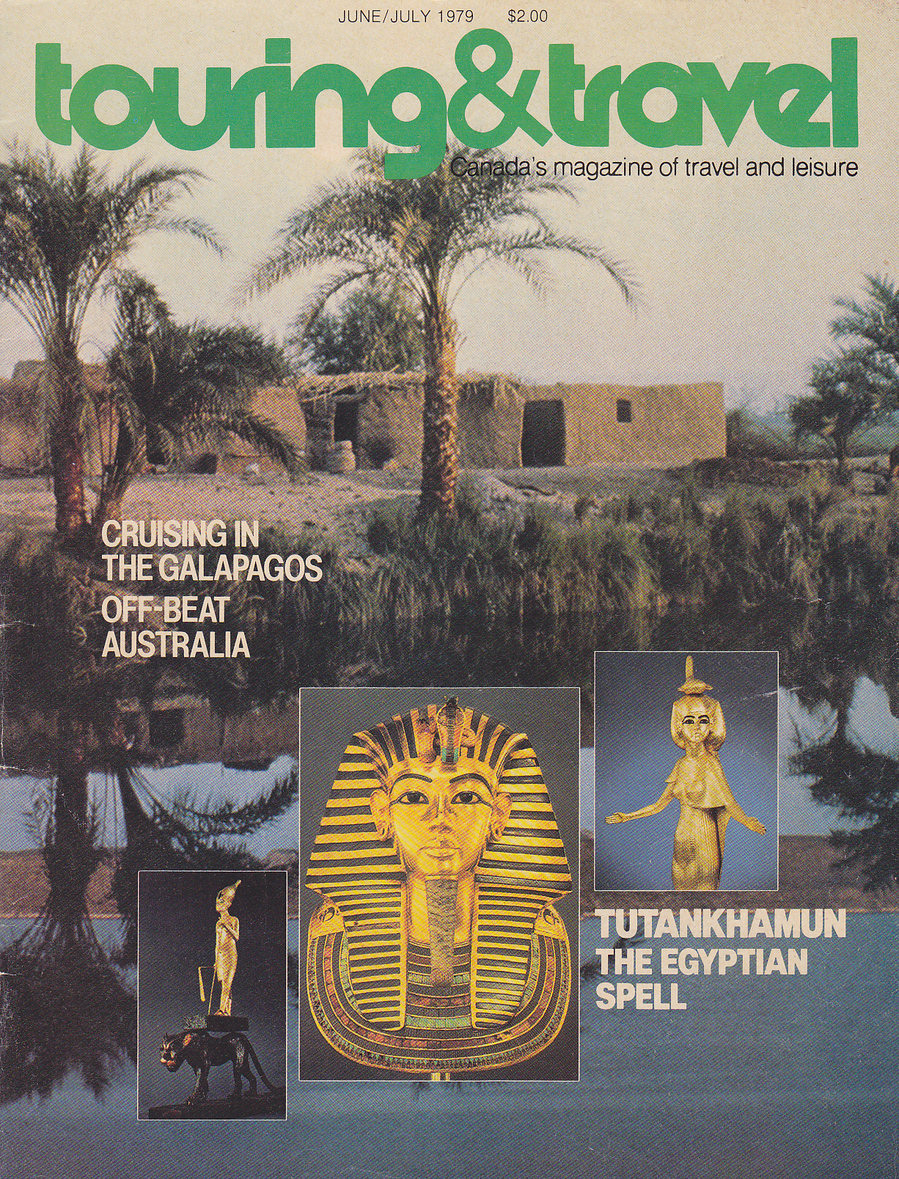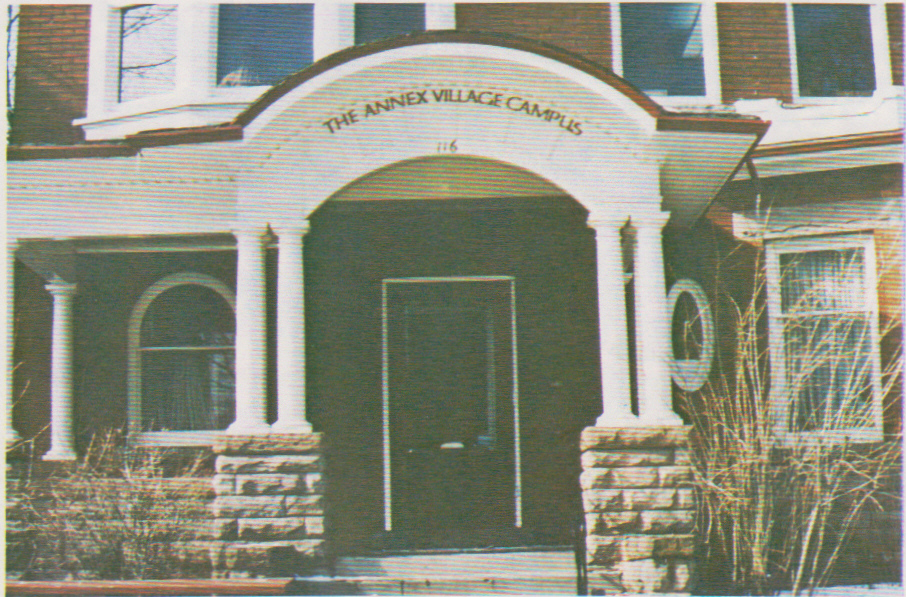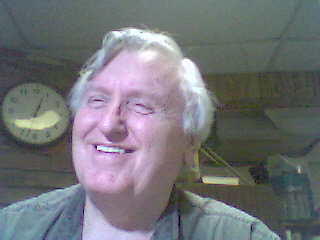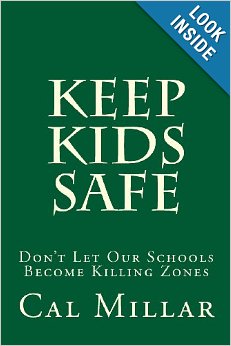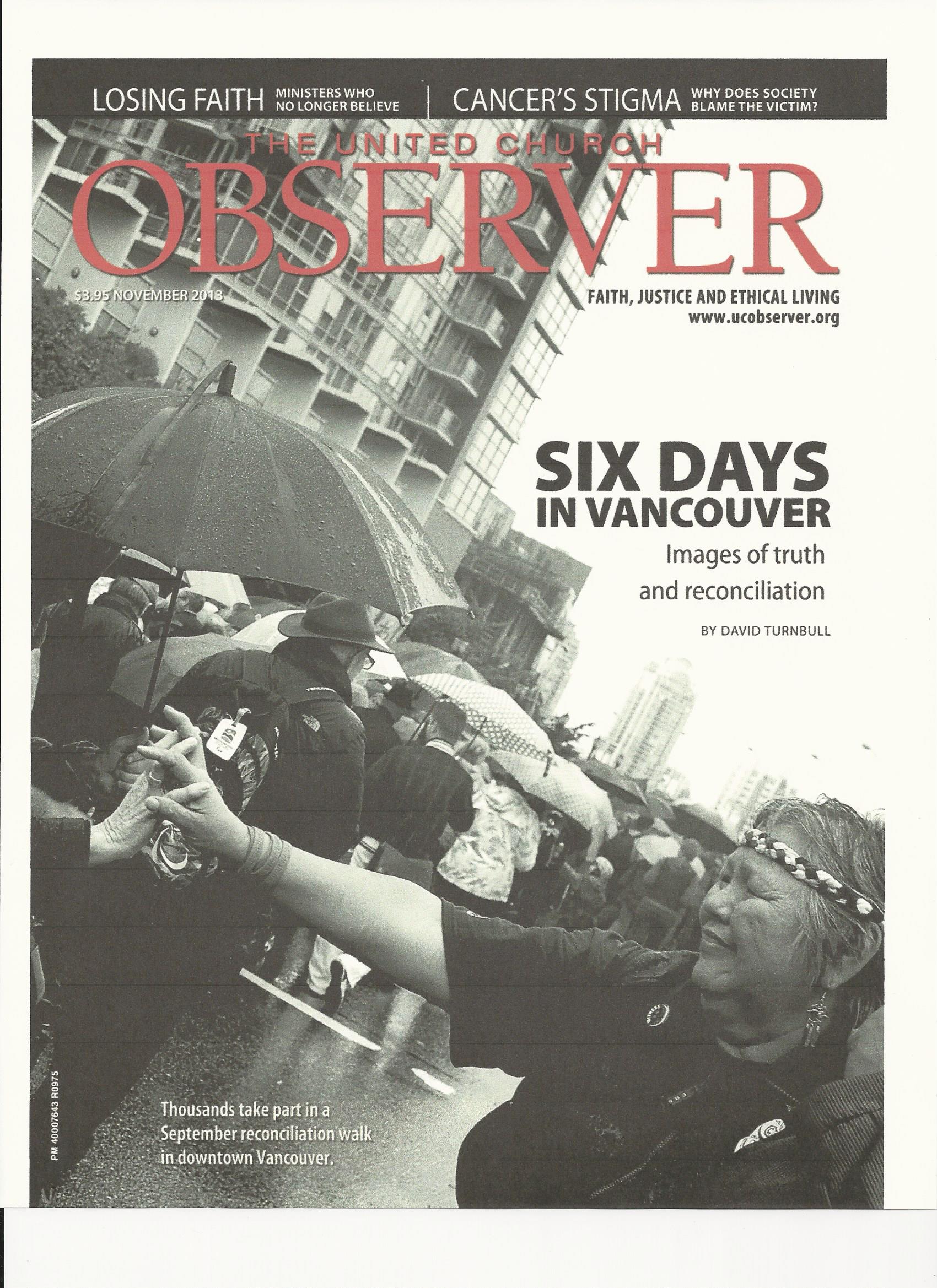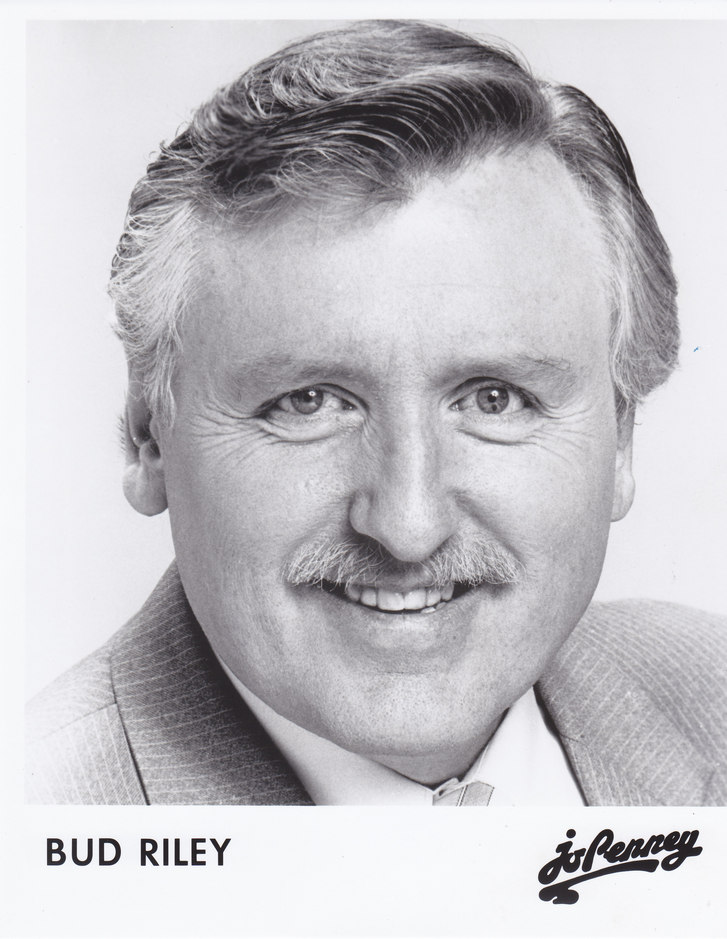
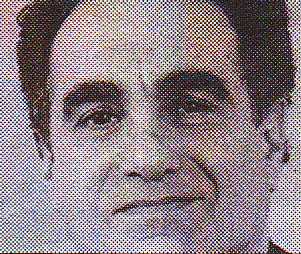 While at Financial Post Radio, Bud was enlisted by FP sports reporter Jamie Wayne to assist with several freelance projects including announcing on a TV pilot for a children's video programme. Jamie continued his interest in programming for children, producing, composing and singing a 2005 hit CD for kids "When I Grow Up. (see audio below). Bud recruited Jamie (son of famed comedian Johnny Wayne of Wayne and Shuster) for sports business items for his newscasts. Jamie was appearing regularly on several network TV programmes with his comic take on current sports news. For several years until recently, Jamie was a weekly columnist the Mirror and other GTA community newspapers with the title: "But Seriously ..." Click here to sample But Seriously...
While at Financial Post Radio, Bud was enlisted by FP sports reporter Jamie Wayne to assist with several freelance projects including announcing on a TV pilot for a children's video programme. Jamie continued his interest in programming for children, producing, composing and singing a 2005 hit CD for kids "When I Grow Up. (see audio below). Bud recruited Jamie (son of famed comedian Johnny Wayne of Wayne and Shuster) for sports business items for his newscasts. Jamie was appearing regularly on several network TV programmes with his comic take on current sports news. For several years until recently, Jamie was a weekly columnist the Mirror and other GTA community newspapers with the title: "But Seriously ..." Click here to sample But Seriously...
click for another typical Jamie Wayne column
Rogers TV: The Innis and Riley report continued in its Friday night spot. Rogers producers, Don Adams and Madaline Ziniac, also used Bud's hosting services on several public affairs programmes including one on the history of Toronto. Bud was the host of the weekly broadcasts of both the Empire Club and Canadian Club speaches. He also wrote and hosted a half-hour TV documentary on great Canadian inventions, "Canada, Eh?" and spun that off into a Toronto Star newspaper feature article titled "Canadian Inventions that Changed the World."
Click here to read Bud's Toronto Star articles
Toronto Sun Newspaper also published several of Bud's articles about Canadian artists.
Having some experience with Egyptology from his graduate school study (Master's Degree in archaeology) at U of T) Bud was asked by Tour and Travel Magazine to do a feature article to coincide with the visit of the King Tut exhibit to Toronto.to Industrial Chemist Magazine in New York assigned Bud to interview four Canadian Nobel Prize-winning chemists and provide a first-person account of their work.
Click here for Bud's 1979 King Tut magazine feature
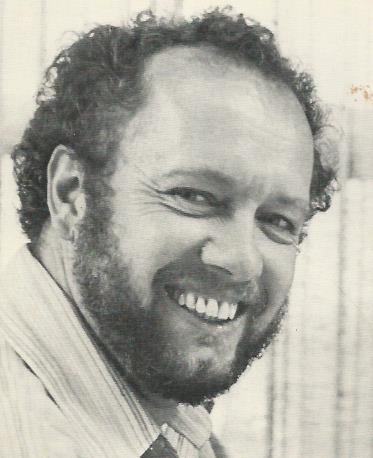 Sandy Stewart and Bud Riley teamed up to try to create a Canadian Radio museum. Sandy was a pioneer of Canadian radio and Television producing award-winning children's programmes such as Razzle Dazzle, Friendly Giant and Reach For The Top, the later is the quiz show that gave Alex Trebec his TV start. The Calgary-born producer started in radio at CFPL in London, Ontario, as a technician and sound effects man. In the early 50s, he joined CBC in Toronto and helped produce popular shows such as "Jake and the Kid. In 1957 CBC sent him to the Northwest Territories to set up three new radio stations. In 1957 he went the Jamaica to set up programme planning and production for Jamaica Broadcasting Corp. In 1962 Sandy transferred to CBC TV. Sandy was the author of "A Pictorial History of Radio in Canada", and his second radio book, "From Coast To Coast, a Personal History of Radio in Canada". He also wrote "Here's Looking at Us: a Personal History of TV in Canada". Sandy was president of the Canadian Science Writers Association when Bud was asked to join in recognition of Bud's Science Journal, a programme he created for CJRT-FM which was initially hosted by science teacher and biologist Jay Ingram. Wthin two years of becoming a member and, at the urging of outgoing president Stewart, Bud was elected president, a post he held for two years (1987 & 1988).
Sandy Stewart and Bud Riley teamed up to try to create a Canadian Radio museum. Sandy was a pioneer of Canadian radio and Television producing award-winning children's programmes such as Razzle Dazzle, Friendly Giant and Reach For The Top, the later is the quiz show that gave Alex Trebec his TV start. The Calgary-born producer started in radio at CFPL in London, Ontario, as a technician and sound effects man. In the early 50s, he joined CBC in Toronto and helped produce popular shows such as "Jake and the Kid. In 1957 CBC sent him to the Northwest Territories to set up three new radio stations. In 1957 he went the Jamaica to set up programme planning and production for Jamaica Broadcasting Corp. In 1962 Sandy transferred to CBC TV. Sandy was the author of "A Pictorial History of Radio in Canada", and his second radio book, "From Coast To Coast, a Personal History of Radio in Canada". He also wrote "Here's Looking at Us: a Personal History of TV in Canada". Sandy was president of the Canadian Science Writers Association when Bud was asked to join in recognition of Bud's Science Journal, a programme he created for CJRT-FM which was initially hosted by science teacher and biologist Jay Ingram. Wthin two years of becoming a member and, at the urging of outgoing president Stewart, Bud was elected president, a post he held for two years (1987 & 1988).
See more on Sandy Stewart. Also, see more on Sandy's TV creation, Reach For The Top
At the request of public relations specialist George Truss, the Wellesley Hospital Foundation public relations director, commissioned Bud to create a syndicated radio report featuring Wellesley doctors, technicians and other health professionals and their foundation-funded research. He created, wrote, produced and performed on "The Health Line".
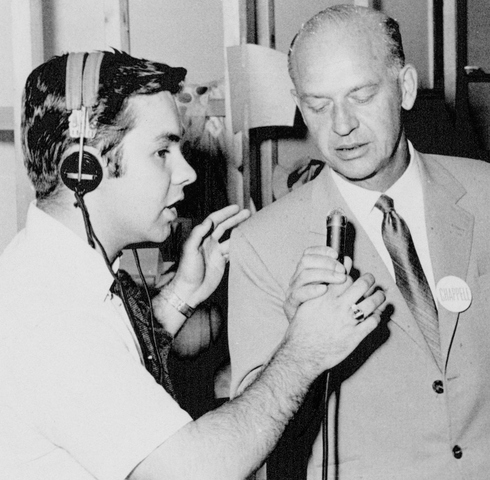 Among Bud's many clients was Atomic Energy of Canada's "Energy Forum", a 15-minute radio feature produced by his friend and former CKEY and CHIC radio newsman, David Turnbull, the communications director for AECL. The Forum was a news feature widely distributed across Canada. Bud did a great many interviews on science and technology for the Forum. David holds a Bachelor of Applied Arts from the Ryerson University, a post-graduate Associateship from University of London and Master of Education from Brock University St. Catharines, ON. Today he is a professor of communications at Seneca College in Toronto
Among Bud's many clients was Atomic Energy of Canada's "Energy Forum", a 15-minute radio feature produced by his friend and former CKEY and CHIC radio newsman, David Turnbull, the communications director for AECL. The Forum was a news feature widely distributed across Canada. Bud did a great many interviews on science and technology for the Forum. David holds a Bachelor of Applied Arts from the Ryerson University, a post-graduate Associateship from University of London and Master of Education from Brock University St. Catharines, ON. Today he is a professor of communications at Seneca College in Toronto
He is also the author of a widely quoted paper on Telephonic Lecturing published by the Canadian Journal of Communications Vol 6, No. 3, 1980.
Click here for a David Turnbull articles from the Sept. 1988 and Oct.1984 PHOTO LIFE MAGAZINE.
Six Days in Vancouver, a photo essay by David Turnbull, published in the
United Church Observer, Nov 2013
An ACTRA union card gave Bud the opportunity to perform in TV commercials and syndicated and network programmes. He augmented his income from a variety of assignments in films as an extra and occasionally had off-camera work such as a stand-in for a main character in David Cronenberg's "Naked Lunch." Bud worked on three other Cronnenberg film and TV projects. Bud played the role of father to two comedic rock musician-singers Al and George in their rock video, "Wreck Room Kids", produced by Insight Productions and aired on the CBC-TV show "It's Only Rock And Roll". He was also seen on "The Best of SCTV". At the same time, his voice-over work continued with a variety of assignments for independent producers, many of them CD sales vehicles. (two examples are located on this web page)
Finally, in 2001, Bud retired. . . . sort of.
Financial Post Business Radio:
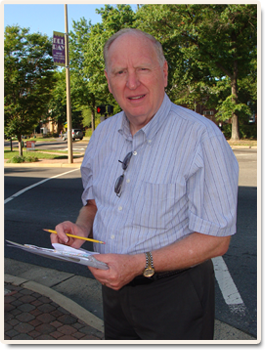 Tempo Productions, a media company owned by newspaperman Cal Millar, hired Bud to appear on filmed TV news reports on energy issues (for Atomic Energy Canada, for example). He also directed public relations productions for a variety of commercial enterprises including Thompson Manufacturing in St. Catharines and hired Bud Riley to narrate them.
Tempo Productions, a media company owned by newspaperman Cal Millar, hired Bud to appear on filmed TV news reports on energy issues (for Atomic Energy Canada, for example). He also directed public relations productions for a variety of commercial enterprises including Thompson Manufacturing in St. Catharines and hired Bud Riley to narrate them.
Cal commissioned Bud to host a 15 min. film on Fishing in Ontario for Tempo Productions. The video on the far right was distributed freely to dozens of Ontario TV stations. See Bud's Movie >>>>>>>>>
Cal began his newspaper career with the Peterborough Examiner in the early 1960s and also worked at the Windsor Star. Moving to Toronto, he was a reporter at the Toronto Telegram and then the Toronto Sun as a police reporter. Cal then joined the Toronto Star newspaper's editorial staff. Since the 1980s, he has been associated with Crime Stoppers and has been honored with the Crime Stoppers of the Year award and was twice recipient of the President's Award from Crime Stoppers International. Cal is now a published author: "Find My Killer -- Crime Stoppers Unsolved Homicides and "I'm Missing--Please Find Me." Cal retired from the Toronto Star after a lengthy career as a police and crime reporter. More on Cal Millar
Non-fiction book: "What Is Crime Stoppers" was reviewed by the founder of Crime Stoppers Greg MacAleese.
Popular Millar books How a Colonel became a Killer and Keep Kids Safe
Most recent publication: Crime Stoppers: The Inside Story
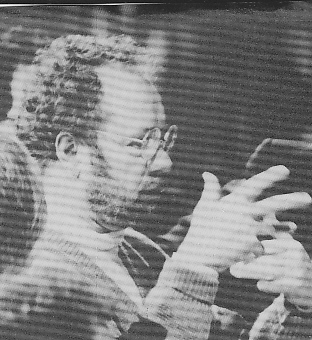 Sandy Stewart, TV roducer ("Razzle Dazzle" "The Friendly Giant" and "Reach For the Top"
Sandy Stewart, TV roducer ("Razzle Dazzle" "The Friendly Giant" and "Reach For the Top"
Click for page of Sandy's Here's Looking at Us
Occasionally, Bud was approached by industrial companies to create public relations projects for their sales or personnel departments. Leeson Motors in Toronto was only one of those that used Bud's voice and writing skills.
 June 25, 1968. Peel South Riding. Federal election. Liberals won a majority. David, a high school student, interviewedHyliard Chappel live on CHIC Radio on election night.
June 25, 1968. Peel South Riding. Federal election. Liberals won a majority. David, a high school student, interviewedHyliard Chappel live on CHIC Radio on election night.
Between 1988 and 1992, Hanna Pilar the Manager of public relations for the Association of Professional Engineers of Ontario commissioned Bud to write articles about the association's annual award winning engineers. These 600 word stories were used for press releases and printed programmes at the awards dinner. Bud interviewed the eight recipients each year to gather information for the project.
The Saskatchewan Science Centre commissioned Bud Riley to contribute to the Centre's reception lobby with a short audio-visual presentation featuring well known Canadian sscientists. Canadian Nobel Prize Laureate, physicist Dr. Gerhard Herzberg, was interviewed by Bud at the National Research Council laboratory and offices in Ottawa.
Between 1986 and 1990, Bud was called on to narrate a variety of religious broadcasting projects for The United Church of Canada. Some projects, produced at the Berkeley Studios in Toronto, were for radio and others for TV. "The Church in the Soviet Union" was one such programme recorded in 1987 that involved narration for a film strip. Another taping was for "The Godshow", a syndicated religious radio programme. Twice during 1990, TV producer Caroline Gray commissioned Bud to do voice-overs for a Cable TV show titled "The Spirit Connection."
Oct. 12, 1986 The God Show, 3 min. radio report
Jan. 19, 1987 The Church in the Soviet Union. Voice-over 15 min. film strip
March 19, 1990 Spirit Connection (Narrator off camera)
October 15 1990 Spirit Connection #8 Kids and Poverty (Narrator)
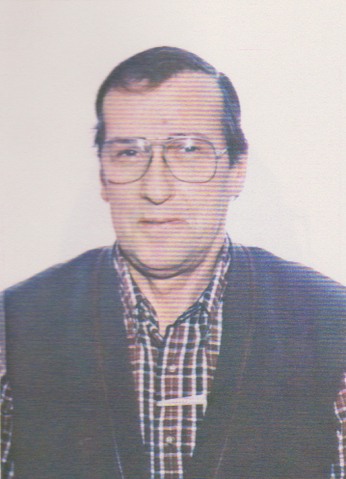 Paul Speck, a friend and a respected educator was occasionally a contributor to Bud's Public Affairs broadcasts on CJRT-FM. In 1992, he hired Bud to teach English to all grades at Speck's Annex Village Campus, a prestigious private high school in central Toronto.
Paul Speck, a friend and a respected educator was occasionally a contributor to Bud's Public Affairs broadcasts on CJRT-FM. In 1992, he hired Bud to teach English to all grades at Speck's Annex Village Campus, a prestigious private high school in central Toronto.
Paul Speck was educated by the Roman Catholic Basilian teaching order at Assumption College, Windsor University (B.A. English) and St. Michael’s College, University of Toronto (graduate degree in Sacred Theology). He was ordained a priest and taught at Michael Power and St. Michael's high schools in Toronto. After leaving the priesthood, he moved to New York to study at Fordham University (M.A. English). He subsequently married. At heart a high school teacher, he discontinued Ph.D. studies at Drew University in Madison, N.J., and returned to Toronto to become a department head and teach in the Public system. Paul and and his wife Bobbi eventually founded their own highly successful Annex Village Campus, which ran from 1972 until his death in 1993. Paul brought his considerable intellect and teaching exprience to the task creating a school which featured a seminar approach to curriculum in very small classes, engaging the students in challenging discussion. (see more on Speck's teaching philosophy.
In 1982 Paul and Bobbi purchased from his cousins 200 acres of land which had been in the family since 1794. He turned his immense energy to transforming the farm and vineyards into an award-winning Niagara Peninsula winery, Henry of Pelham, named after his original ancestor. The first harvest was in 1988. When Paul died in 1993, Bobbi shared ownership of the winery with her sons, Paul, Matthew and Daniel who had planted the first sixty-five acres in the early 1980s when they were young students and culltivated the land throughout their university years. The sons were given complete control of the management and developed Henry of Pelham through its fledgling stages to become one of Canada's premier wineries.
Teaching assignments
In 1990, Bud began teaching at Ryerson, Centennial College, Humber College and Seneca College in Toronto. His courses were English literature, business writing, presentation skills and media analysis. This was not the first experience Bud had with classroom work: in 1983, during his years at CJRT-FM, he was asked by archaeologist Mima Kapches, a former U of T school mate and now a curator at the Royal Ontario Museum, to take over her Ryerson Continuing Education course, Old Bones and Stones. Bud eagerly agreed and constructed his own archaeology course titled Old Bones and Sharpened Stones.
In the spring of 1993, Bud created the Annex Village Review, an internal publication of student writings. The review was a hit with his English classes as students began offering their own poems and fictional items without prodding. Click here to see a sample.
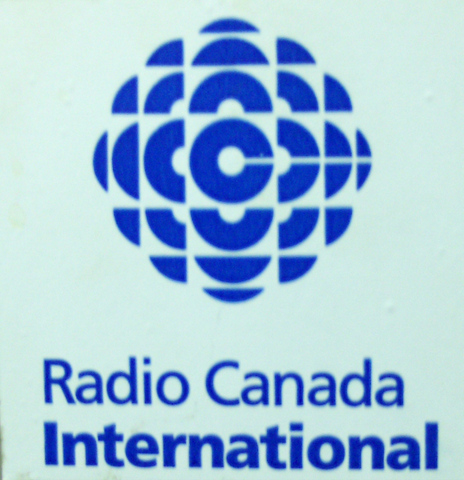
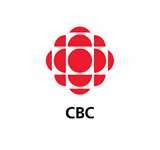 CBC RADIO
CBC RADIO
Bud generated and filed several stories for The Arts Report which re-united him with producer Ed Trapunsky with whom he worked at CJRT-FM when Ed was a producer for CJRT's Open College. Today, Ed is the author of several books and is a popular events speaker. Bud's reports also re-connected him with a friend, writer Tom York and his U of T Archaeology professor Cayler Young.
CFOR Orillia 1957-1958 CKAR Huntsville 1959 C-HOW Welland 1959-1967
CKPR Thunder Bay 1963-1964 CJRN Niagara Falls 1967-68 CHUM 1968-1969
CKFH Toronto 1969-1974 CJRT - FM Toronto 1974-1985 Freelance 1985-2000
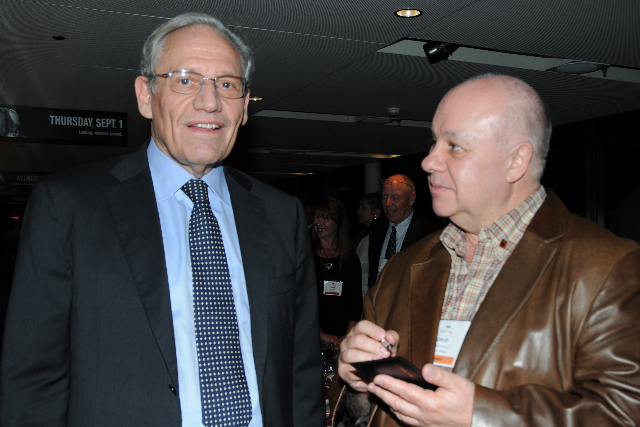 Dave interviewing author Bob Woodward,
Dave interviewing author Bob Woodward,
In the 90s, after his tenure at the Canadian Science Writers Assoc., Bud recruited Sandy Stewart to start a project to create a museum and archive dedicated to preserving the history and heritage of Canadian broadcasting. More on the Canadian Museum and Archive project. Members of the organizing committee were Sandy Stewart, Bud Riley, Martin Aherma and Don Adams.
or visit Bud Riley's "Friends" page
Click here to explore a short presentation on the history of TV and how some early radios were adapted to carry TV images
One of the many special reports filed by Bud to RCI was a 10-minute documentary on Reginald Fessenden, the inventor of AM radio and whose voice was the first transmitted through the air without wires. The CBC domestic service opted to air the programme several times. For the main CBC network Bud created many reports for InfoTape an internal service created to augment topical content for network stations across the country.
The Food Show was a CBC programme broadcast from Western Canada. Bud filed a report to the show when he ran across an innovative business idea that dealt with making salt cod more convenient by packaging the fish in a can.
In 1968, Bud was a sculpture student at the Ontario College of Art in Toronto. He was always on the search for stories that matched this interest so when the CBC Northern Service suggested he survey the subject of Inuit Art in the Toronto scene he was eager to do it.
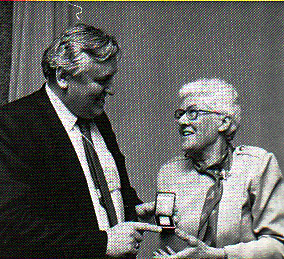 As president of the Science Writers Association, Bud shepherded a change of venue for the association's annual general meeting which was traditionally held in Ontario. For the first time in the association's history, the annual meeting and conference was held in Vancouver, B.C., making it a truly national organization. He also saw two western Canada members elected to the Board of Directors. He established the President's Medal to honour the association's hard-working supporters. The first to receive the medal was Joan Hollobon, a member of the association's board of directors and a long-time medical reporter for the Toronto Globe and Mail newspaper. Two decades later, The CSWA also awarded her the 2010 Life Time achievement Award. Bud also introduced professional development sessions for science writers and conducted many of them himself and looked after the interests of Canadian science writers (Bud wrote this letter to the editor of the Toronto Star)
As president of the Science Writers Association, Bud shepherded a change of venue for the association's annual general meeting which was traditionally held in Ontario. For the first time in the association's history, the annual meeting and conference was held in Vancouver, B.C., making it a truly national organization. He also saw two western Canada members elected to the Board of Directors. He established the President's Medal to honour the association's hard-working supporters. The first to receive the medal was Joan Hollobon, a member of the association's board of directors and a long-time medical reporter for the Toronto Globe and Mail newspaper. Two decades later, The CSWA also awarded her the 2010 Life Time achievement Award. Bud also introduced professional development sessions for science writers and conducted many of them himself and looked after the interests of Canadian science writers (Bud wrote this letter to the editor of the Toronto Star)
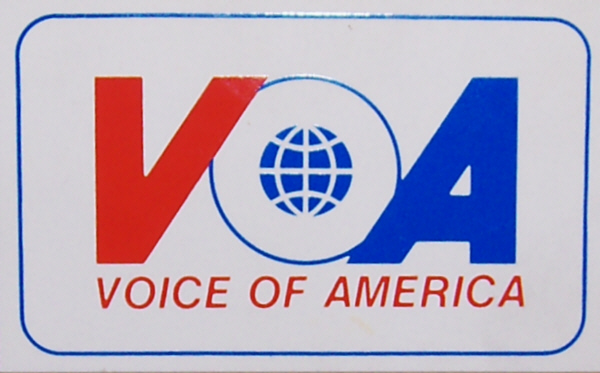 Voice of America: While working at CBC, the American short wave service VOA recruited Bud to be their Canadian corespondent. The assignment required several items on the introduction of Canada's goods and services tax (GST) and the failed Meech Lake accord. Bud produced several reports per month on topical Canadian stories and issues.
Voice of America: While working at CBC, the American short wave service VOA recruited Bud to be their Canadian corespondent. The assignment required several items on the introduction of Canada's goods and services tax (GST) and the failed Meech Lake accord. Bud produced several reports per month on topical Canadian stories and issues.
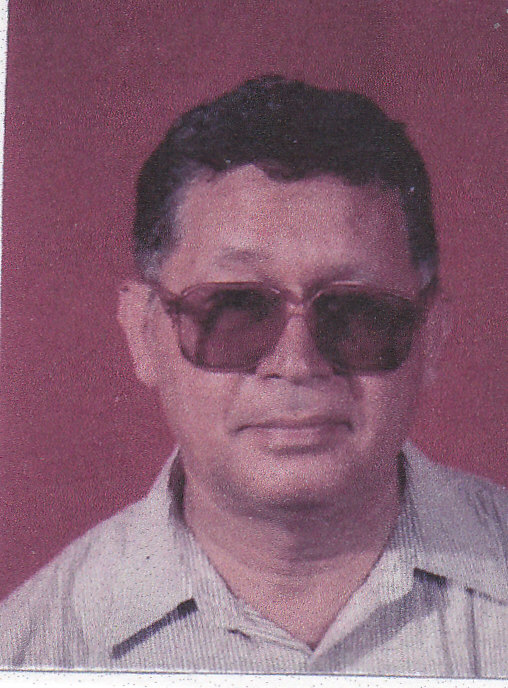 Darryl Dean at Radio Canada International. In a career in journalism spanning more than half a century, Darryl has worked as a reporter, editor and broadcaster in Canada and in his native Trinidad. He started out as a correspondent for the Trinidad Guardian newspaper. He has worked as a reporter with the Toronto Globe and Mail and has written for several other major Canadian newspapers, including the Toronto Star. He was also editor of two Toronto-based community newspapers – the Caribbean Chronicle and Contrast. As a broadcaster, Darryl has done extensive freelance work for the CBC's short wave service, Radio Canada International. Darryl worked briefly in Guyana as communications officer with the Caribbean Community (CARICOM) Secretariat and also served as Sunday editor of the Trinidad Express. Darryl is currently working on a book of short stories. His time in the Caribbean interrupted his academic pursuit of a Masters Degree in Journalism at Carleton University in Ottawa. In 2015 he completed a final course at York University along with his thesis. In November of that year, he was awarded his Masters,
Darryl Dean at Radio Canada International. In a career in journalism spanning more than half a century, Darryl has worked as a reporter, editor and broadcaster in Canada and in his native Trinidad. He started out as a correspondent for the Trinidad Guardian newspaper. He has worked as a reporter with the Toronto Globe and Mail and has written for several other major Canadian newspapers, including the Toronto Star. He was also editor of two Toronto-based community newspapers – the Caribbean Chronicle and Contrast. As a broadcaster, Darryl has done extensive freelance work for the CBC's short wave service, Radio Canada International. Darryl worked briefly in Guyana as communications officer with the Caribbean Community (CARICOM) Secretariat and also served as Sunday editor of the Trinidad Express. Darryl is currently working on a book of short stories. His time in the Caribbean interrupted his academic pursuit of a Masters Degree in Journalism at Carleton University in Ottawa. In 2015 he completed a final course at York University along with his thesis. In November of that year, he was awarded his Masters,
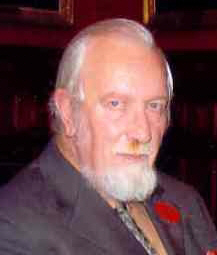 Colin Rickards worked with Bud at Radio Canada International. A former London-based newspaper reporter and author, Colin edited the now-defunct Caribbean Business News and later worked for Share, a community newspaper in Toronto. His columns also appeared in the Caribbean Camera and Pride, two Toronto-based community publications. He was best known for his series of columns on "Caribbean People." Before migrating to Canada, the English-born journalist was the London correspondent for several West Indian newspapers and came to be considered an expert on Caribbean affairs. He was the author of no fewer than nine books, several of them dealing with the American West. Because of his wide knowledge of Caribbean affairs, he was a frequent guest on radio and television programs in Canada which dealt with developments in the region. Colin died of a heart attack on November 24, 2011
Colin Rickards worked with Bud at Radio Canada International. A former London-based newspaper reporter and author, Colin edited the now-defunct Caribbean Business News and later worked for Share, a community newspaper in Toronto. His columns also appeared in the Caribbean Camera and Pride, two Toronto-based community publications. He was best known for his series of columns on "Caribbean People." Before migrating to Canada, the English-born journalist was the London correspondent for several West Indian newspapers and came to be considered an expert on Caribbean affairs. He was the author of no fewer than nine books, several of them dealing with the American West. Because of his wide knowledge of Caribbean affairs, he was a frequent guest on radio and television programs in Canada which dealt with developments in the region. Colin died of a heart attack on November 24, 2011
e-mail budrileyradio:
bgoreilly@rogers.com
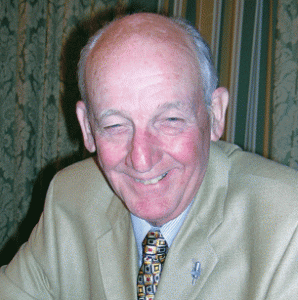 Alec Bollini managed the Toronto office for Radio Canada International (RCI). Alec had relocated to Toronto after many years as a popular CBC sports reporter in Montreal. Alec died on Dec. 21, 2012. Read Alec's obituary
Alec Bollini managed the Toronto office for Radio Canada International (RCI). Alec had relocated to Toronto after many years as a popular CBC sports reporter in Montreal. Alec died on Dec. 21, 2012. Read Alec's obituary
Alec enjoyed reporting on all forms of sports but his personal passion and pastime was tennis.
As President of the Canadian Science Writers Association (CSWA) Bud presided over a blue ribbon panel of association directors including Sandy Stewart, Jeff Crelinsten, Russ McNeil, Bob Collins, Marilyn Dunlop (Toronto Star), Bruce Findlay, Ken Day, George Truss, Joan Hollobon (Glove & Mail(, Chris Trump, Hugh Quetton, June Engel, Bob Morrow, Jim Steinhart, Jack Miller (Toronto Star), George Truss and Susan Boyd.
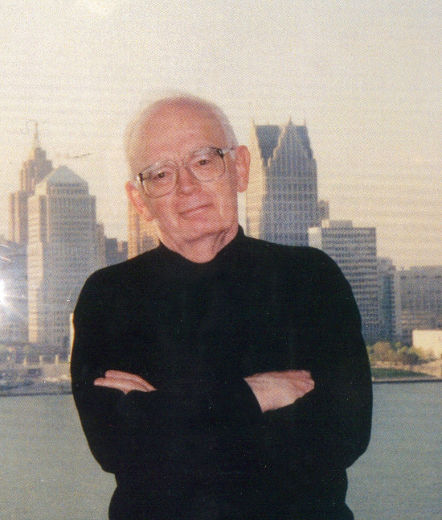 Jack Miller was the senior science writer on Bud Riley's CSWA board of directors. Jack's career started at the Welland Tribune (1945- 1953 and continued with the Hamilton Spectator (1953-1971). He joined the writing staff at the Toronto Star as an award-winning science reporter until his retirement in 1995. In 1991, Jack devoted himself to teaching journalism at Niagara College while still working at the Star. Jack died in Port Colborne, Ontario, on October 9, 2013.
Jack Miller was the senior science writer on Bud Riley's CSWA board of directors. Jack's career started at the Welland Tribune (1945- 1953 and continued with the Hamilton Spectator (1953-1971). He joined the writing staff at the Toronto Star as an award-winning science reporter until his retirement in 1995. In 1991, Jack devoted himself to teaching journalism at Niagara College while still working at the Star. Jack died in Port Colborne, Ontario, on October 9, 2013.
Click here to read Jack's obituary.
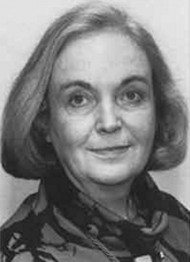 Marilyn Dunlop was the Toronto Star's medical reporter from 1968 to 1977. She was educated at the University of Western Ontario, and has been a journalist for the Toronto Star since 1964, serving as London, England Bureau Chief from 1977 to 1980. Her honours include four Science Writer Association Awards and the National Newspaper Award in Feature Writing. Marilyn is the author of a critically acclaimed book Bill Mustard: Surgical Pioneer (Dundurn Press)
Marilyn Dunlop was the Toronto Star's medical reporter from 1968 to 1977. She was educated at the University of Western Ontario, and has been a journalist for the Toronto Star since 1964, serving as London, England Bureau Chief from 1977 to 1980. Her honours include four Science Writer Association Awards and the National Newspaper Award in Feature Writing. Marilyn is the author of a critically acclaimed book Bill Mustard: Surgical Pioneer (Dundurn Press)
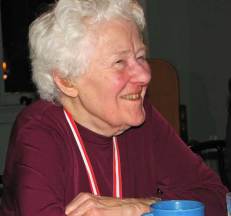 Joan Hollobon was one of the founders of the Canadian Science Writers Association and The Women's Press Club of Toronto. She is also the author of "The Lion's Tale: the History of Toronto's Wellesley Hospital" which won the Toronto Book Award for 1988. Joan also was given the 1986 Canadian Medical Associations CMA Medal of Honour for her contributions to educating the public about health issues. Her own name appears on a writing award issued by the Health Care Public Relations Association of Canada. The Joan Hollobon Award is issued annually to health writers across Canada. After 25 years with the Toronto Globe and Mail, Joan retired in 1986. On March 29, 2021 she was invested with the Order of Canada in a computer streamed ceremony due to the pandemic. More on Joan Hollobon
Joan Hollobon was one of the founders of the Canadian Science Writers Association and The Women's Press Club of Toronto. She is also the author of "The Lion's Tale: the History of Toronto's Wellesley Hospital" which won the Toronto Book Award for 1988. Joan also was given the 1986 Canadian Medical Associations CMA Medal of Honour for her contributions to educating the public about health issues. Her own name appears on a writing award issued by the Health Care Public Relations Association of Canada. The Joan Hollobon Award is issued annually to health writers across Canada. After 25 years with the Toronto Globe and Mail, Joan retired in 1986. On March 29, 2021 she was invested with the Order of Canada in a computer streamed ceremony due to the pandemic. More on Joan Hollobon
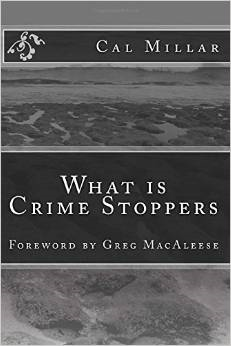 This book provides an explanation of Crime Stoppers and tells how programs operate around the world. Created in 1976 by Greg MacAleese, an Albuquerque, New Mexico detective, to solve the slaying of a 19-year-old college student, the concept has grown to a global network of independent Crime Stoppers programs dedicated to improving security in communities and keeping streets safe.
This book provides an explanation of Crime Stoppers and tells how programs operate around the world. Created in 1976 by Greg MacAleese, an Albuquerque, New Mexico detective, to solve the slaying of a 19-year-old college student, the concept has grown to a global network of independent Crime Stoppers programs dedicated to improving security in communities and keeping streets safe.
See a note on Cal's future project.
The following is a VOA report on Canada-Soviet relations after Canada ousted 19 Soviet diplomats and five Canadians were deported from the Canadian embassy staff in Moscow.
 Jeffrey Crelinsten, was a key member of Bud's board of directors at the Science Writers Association. When Bud finished his tenure as president, Jeffery took over the helm for the next two years. Today, he runs his ownb science communications company as president of The Impact Group, specializes in science and technology communications and policy. He has worked as a consultant to firms, government agencies and associations, helping clients understand their customers and stakeholders and meet their strategic planning and communications needs. Jeffrey has also worked extensively in the formal and informal education sectors, developing programs and materials to promote science and technology to youth and adults.He is also President of Innovation Atlas Inc. He has been active as a science documentary writer for radio and television, a newsletter editor and an author of science books for children. He was on the board of the Canadian Science Writers Association for six years, serving two years as President and is currently on the Steering Committee of the Science and Technology Awareness Network (STAN). He has a doctorate in history of science and science policy from the University of Montreal, an M.Sc. in astronomy from the University of Toronto and a B.Sc. in physics from McGill University. His new book, Einstein's Jury: The Race to Test Relativity is published by Princeton University Press
Jeffrey Crelinsten, was a key member of Bud's board of directors at the Science Writers Association. When Bud finished his tenure as president, Jeffery took over the helm for the next two years. Today, he runs his ownb science communications company as president of The Impact Group, specializes in science and technology communications and policy. He has worked as a consultant to firms, government agencies and associations, helping clients understand their customers and stakeholders and meet their strategic planning and communications needs. Jeffrey has also worked extensively in the formal and informal education sectors, developing programs and materials to promote science and technology to youth and adults.He is also President of Innovation Atlas Inc. He has been active as a science documentary writer for radio and television, a newsletter editor and an author of science books for children. He was on the board of the Canadian Science Writers Association for six years, serving two years as President and is currently on the Steering Committee of the Science and Technology Awareness Network (STAN). He has a doctorate in history of science and science policy from the University of Montreal, an M.Sc. in astronomy from the University of Toronto and a B.Sc. in physics from McGill University. His new book, Einstein's Jury: The Race to Test Relativity is published by Princeton University Press
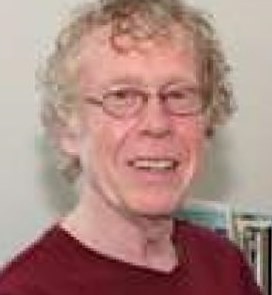
Russ McNeil was the treasurer for the Science Writers. In the early 70s he was a York University studet working on the development of the first lidar system designed for terrestrial atmospheric research. Many years later, it was fully developed and sent on its way to Mars aboard NASA's Phoenix Mars Lander. Today, Russ is a retired Malaspina University-College Physics professor in B.C. Russ McNeil has just written his first book, The Meditations of Marcus Aurelius: Selections Annoted & Explained, reflecting on his many years in Physics and Liberal Studies at Malaspina.
Dr. June Engle was one of the founding members of the Canadian Science Writers Association. She was a biochemist who earned her PhD from University College in London, England. Her career in science led her to making scientific TV shows. Emigrating to Canada in 1965, she began working for CBC and the National Film Board. For more than 20 years, she edited the University of Toronto Health News and wrote many magazine articles on health. June Engle died on March 11, 2012 in Toronto.
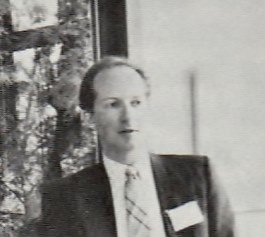
Geoff Foulds was the editor of the The Canadian Science Writers Association monthly Science Link communication. Geoff is a prolific writer whose thoughtful opinions on many subjects are well respected. (sample his writing) Today he is the CMO for infiniD in Toronto aiding startup companies. His particular expertise is in computer software and hardware for both small teams and global enterprises.
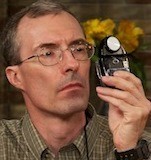
Bud Riley hosted the weekly TV broadcasts of both the Empire Club and Canadian Club speeches from the Royal York Hotel in Downtown Toronto. Randy French was the camera man and on-site producer of the presentations. Randy started as a volunteer at Rogers before moving up to producer/director of mobile productions. Today he is a Technical Producer at Rogers Communications in Toronto.
Bud did not wait to retire to take up art (oil painting and sculpture), he started painting at the age of nine with a Christmas present of a box of oils and brushes. Click here to see a few samples of his work since then.
Note on the Broadcast Museum creation attempt.
In the late 80s and early 90s, Bud combined his radio work, teaching and participating in TV and Film production. These are just of few of the notable projects.
1987 The Return of the Six-Million Dollar Man and Woman
1987 Parents (TV movie)
1987 Friday's Curse (TV film)
1988 Emergency Room (TV series 3 episodes CHCH TV Hamilton production
1988 Dead Ringers (David Cronenberg film
1988 War of The Worlds
1988 The Best of SCTV (FCC/CRTC Governor)
1988 Short Circuit 2 (Robot comedy film)
1989 Love and Hate (CBC TV story of Colin Thacher murder case)
1990 Scales of Justice (CBC TV Barbara Turnbull STory (David Cronenberg
1991 Naked Lunch (David Cronenberg film.....Stand-in assignment
1991 This is My Life
1991 Grand Larceny (TV movie)
1991 Street Legal TV 3 episodes
Don Adams brought Bud Riley's weekly radio commentary on CJRT Radio to Rogers TV as Innis and Riley which eventually added a third member to the production in the person of Pete MCGarvey.
When Bud and Hugh showed up for an audition, they discovered that Don had built an entirely new set for them. The show began with two cameras with operators which lasted a year. The two camera people left for western Canada so Don set up stationary cameras and locked them in and he became producer/director, camera man and audio technician.
Don had been the unofficial Rogers archivist, collecting and maintaining a large number of Edward Samuel Rogers radio inventions, included the famed batteryless radio vacuum tube that for the first time, allowed the radio to be plugged into the house electrical outlet. When Rogers found a permanent home for his collection at Ryerson Politechnical, the CBC hired Don to also look after it's vast collection. Don retired from the CBC Museum in 2007.
Don died on July 30, 2022. Donald Bruce Adams obituary.
